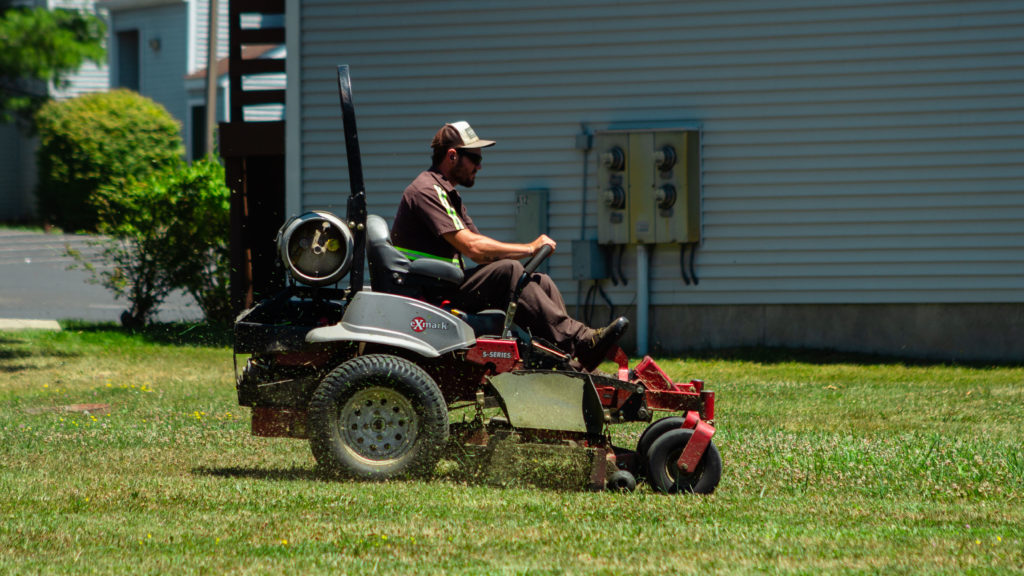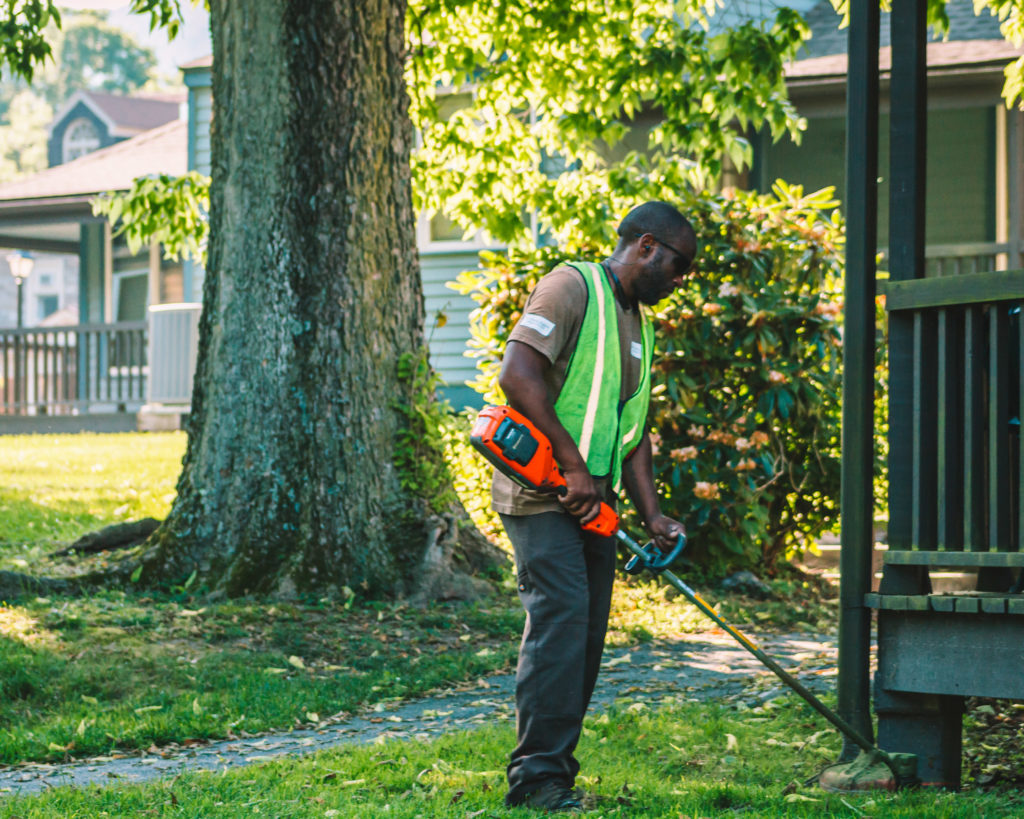
Thanks to advances in technology, there is a better way for landscapers when it comes to what equipment we use on your property. Quieter and healthier alternatives to gas-based engines are becoming increasingly available, and only getting better! Here at Strauser Nature’s Helpers, we’re continuing to switch to propane and battery-powered equipment for a multitude of reasons.
By switching to propane and battery equipment such as mowers, trimmers, and blowers, we can make our operations quieter, safer, and more cost-effective. Battery-powered equipment runs 10-20 decibels quieter than gas, which can be a plus if your property’s outdoor space caters to employees, tenants, and customers who enjoy spending time outside. Propane mowers also run quieter than their gasoline counterparts, so you can appreciate the reduced distraction from a landscape crew operating on your property.
Propane is also cheaper by the gallon than gasoline and provides a smoother, longer run-time for our mowers, which means more time servicing your property and less time refueling. It can also be stored indefinitely, whereas gas has a 12 month shelf life. Both battery-powered and propane equipment require less maintenance, which also help us reduce repair costs. This cost benefit means we can provide the best possible pricing to our clients!

When it comes to safety, propane has a higher flammability rate, which means it needs to get hotter than gas to catch fire. It’s also non-toxic, so it won’t contaminate any water or soil it comes in contact with. Fortunately, we don’t expect fuel spillage or leakage anyway, because when a propane tank is empty, our crews simply detach the tank and put on a spare – no mess, no risk of contamination.

Our favorite part about using propane and battery equipment is the long list of ecological benefits. By using battery-powered trimmers and blowers, we’re conserving resources and adding eco-value to our equipment. That’s because these batteries can be recycled once they’re no longer usable. Reduced fuel consumption, emissions, solid waste, toxic waste, fuel leakage and spillages, and reduced risks to our employees’ health all drive our commitment to eco-friendly equipment use.









